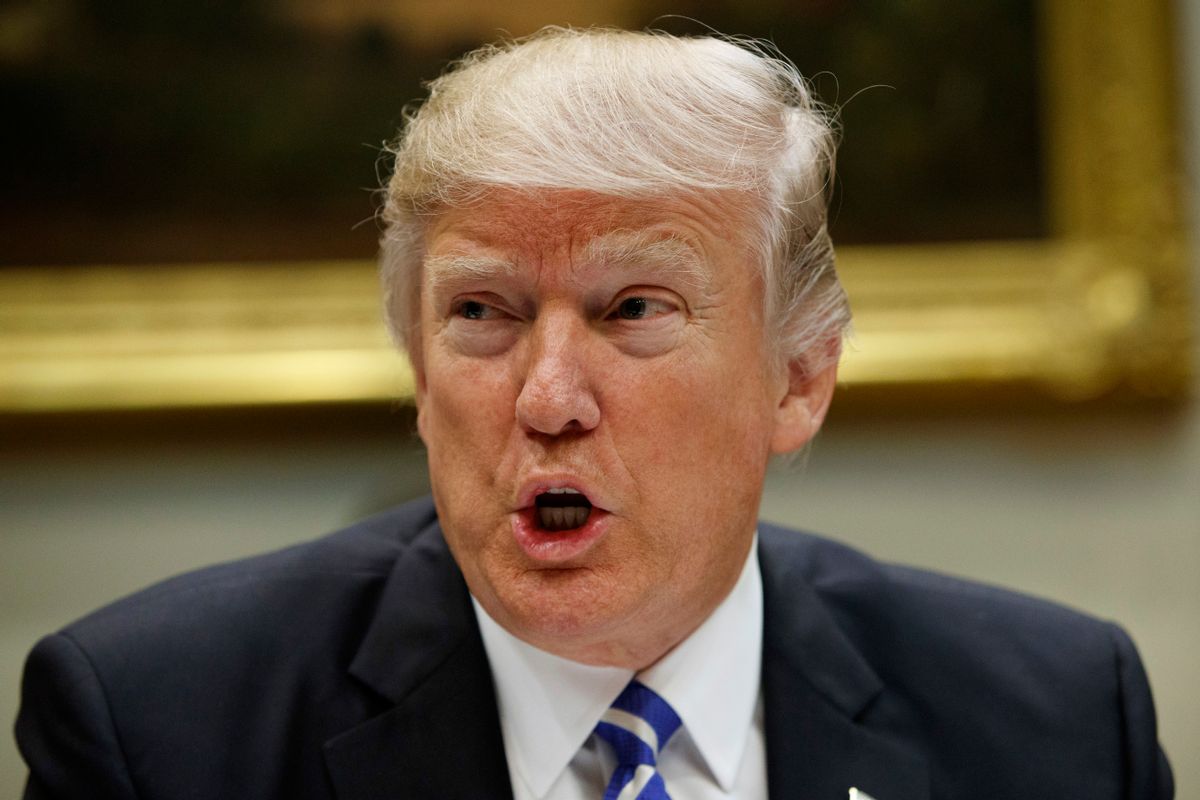The Republican “replacement” for the Affordable Care Act has the dubious distinction of being a terrible piece of legislation that will hurt people and which almost everyone dislikes. President Trump and House Speaker Paul Ryan are nonetheless quite keen to jam the bill through Congress and get it signed into law. To get there, they’ll have a work their way through some nasty procedural rules and political thickets, and the White House just dropped a big hint as to what the strategy will be for getting this bill passed.
One of the primary obstacles to the passage of Ryan’s American Health Care Act is intraparty discord among Republicans. As it stands, the bill faces opposition from two different factions in the party whose concerns are mutually exclusive. Hardline conservatives within the GOP, represented by the House Freedom Caucus, complain that the bill still relies too heavily on federal government programs for the provision of healthcare. On the other end of the divide are Republicans (largely senators and governors) who balk at the bill’s cuts to Medicaid funding. Trying to appease one side will necessarily alienate the other.
That said, the White House appears to be throwing its lot in with the hardliners. The American Health Care Act calls for the Affordable Care Act’s expansion of Medicaid to be frozen in 2020, after which it’s assumed that enrollment will fall off and the program will atrophy. As CNN reported, President Trump is giving in to the House Freedom Caucus’ demands to accelerate that process.
“White House officials are beginning to urge House GOP leadership to include an earlier sunset of the Medicaid expansion funds,” CNN reported. The network quoted a “senior administration official” as saying: “We've been pulling the bill to a more conservative place for a week plus.”
What this shows is that the White House is making a strategic gamble: that it can give in to the House Freedom Caucus and still put sufficient pressure on the “moderates” to vote for the legislation even as the bill becomes less palatable to them. Recent history suggests that this isn’t the dumbest plan.
If you were condense the last few years of Republican politics into a single phrase, it would be “caving to the hardliners.” It happened in 2013, when Republican leaders allowed anti-Obamcare zealots to steer the party into a government shutdown. It happened again in 2014, when comprehensive immigration reform met its ignominious demise and the party rallied around maximum deportations as its policy. It happened yet again in 2015, when a newly empowered Republican House and Senate nearly shut down the Department of Homeland Security over Barack Obama’s executive orders on immigration. Just a few months after that, the hard-right faction of the party successfully forced John Boehner from the Speakership.
Sprinkled through this brief history are various other showdowns over government spending, taxes, and the debt limit, all of which demonstrated that conservative hardliners are perfectly willing to toss aside the Republican leadership’s legislative priorities and forcefully execute their own agenda. The fact that the Trump White House caved so quickly to the House Freedom Caucus’ demands on Medicaid shows that it has little interest in testing the hardliners’ determination.
That, of course, exacerbates their problem with the more moderate Republicans in the Senate and the states who are wringing their hands over preserving health coverage gains under Obamacare’s Medicaid expansion. But the White House would have an easier time strong-arming moderates into supporting the bill than it would the House Freedom Caucus. After all, the political goal here is one that everyone in the party is pulling for: the repeal of Obamacare. And in Republican politics, no one wants to be seen as the person who voted to stop Obamacare’s demise.
Who knows whether this strategy will work? The House Freedom Caucus might decide that the American Health Care Act is still too generous to poor people to earn its support. Senate Republicans might discover something resembling a spine and vote to protect their constituents from the depredations of this bill. Regardless, it seems clear that supporters of the American Health Care Act have recognized that acceding to the demands of conservative extremists is the path of least resistance.

Shares